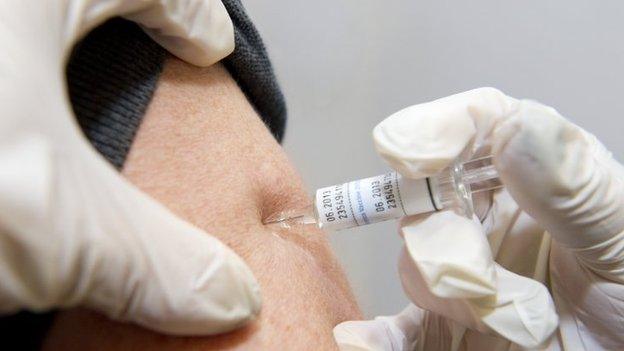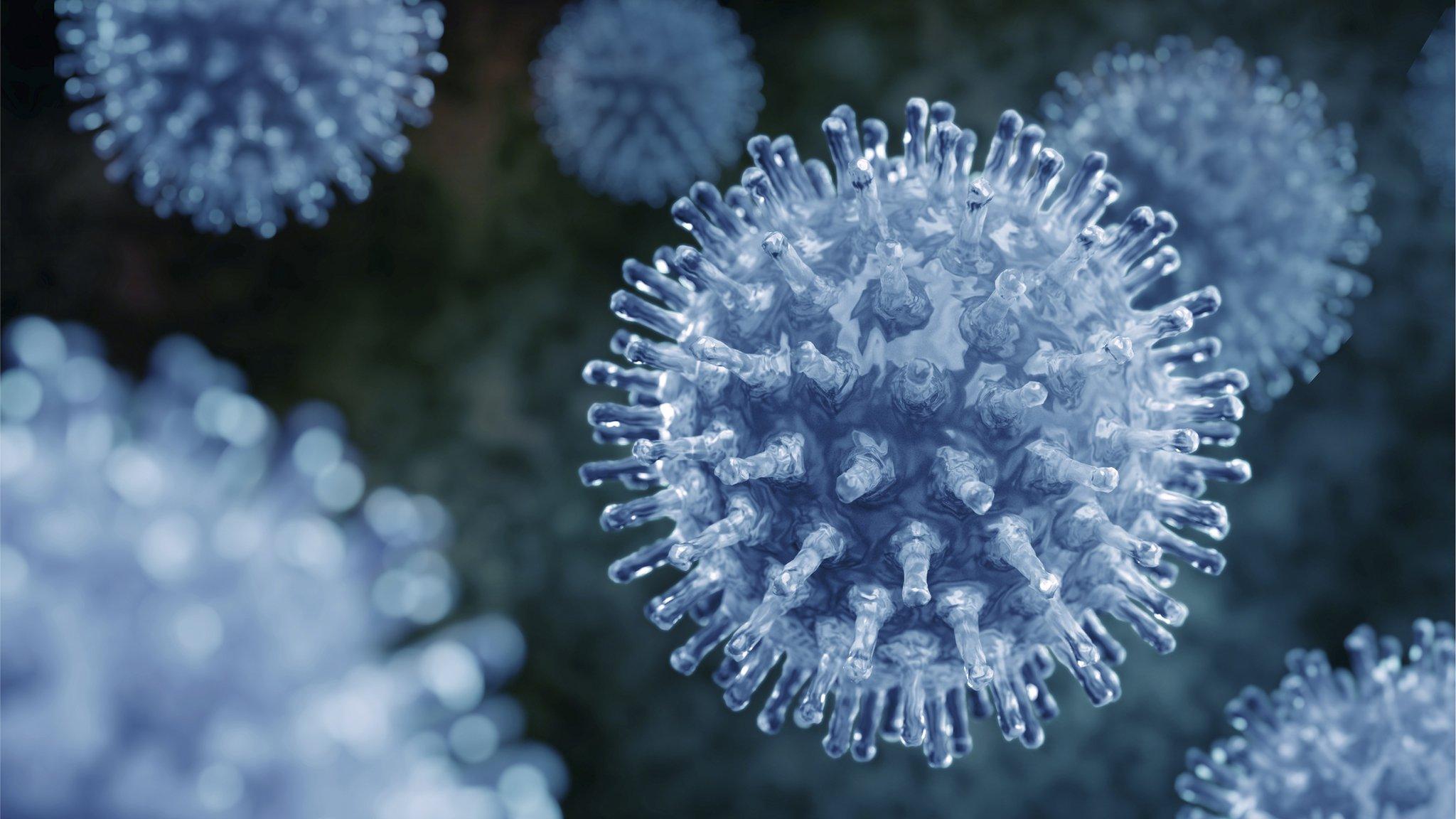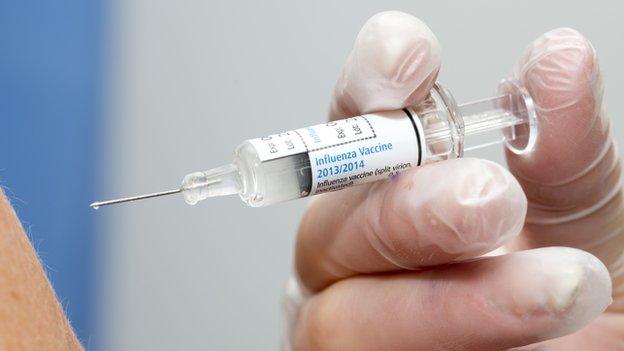Flu jab drive to address last year's 'failure'
- Published

Ministers are urging people not to be put off by failures of the flu vaccine last year.
They say those who qualify for a free jab, or spray for children, should take up the offer this winter as it offers the most effective cover against flu.
Last winter it emerged that the seasonal flu vaccine used offered barely any cover against the main strain of flu encountered in the UK.
Flu is a constantly shifting target and that makes it tricky to make a vaccine.
It is why a new jab is needed each year, based on a best estimate of what strain the virus will be.
The World Health Organization decides on the constituents of the vaccine for different parts of the world in February each year. Production is normally complete by the end of August allowing distribution in time for the winter season.
Still worth it
Last year it became clear in the Australian winter that there had been mutations in the anticipated strains of the virus, but it was too late to adapt the vaccine before the Northern Hemisphere winter. It worked for just 3% of people who had the jab and were exposed to the virus.
Usually the vaccine is 50% effective.
Deaths from all causes were up by about one-third in the first three weeks of this year in England and Wales. Health experts say flu and the ineffectiveness of the vaccine were probably factors.
Early indications from Australia this year are not encouraging. Flu cases so far in their winter are running well above average in some areas, though it's not clear whether this is linked to the effectiveness of the vaccine.
The Department of Health wants to ensure that the elderly and other vulnerable groups are not deterred from having their jabs this autumn.

Who should get it?
Those eligible to receive a free flu jab (or spray for children) include:
people aged 65 or over
pregnant women
2-4 year old children and primary school children in years one and two
people with certain medical conditions (chronic heart disease, asthma or diabetes, for example)
people living in a long-stay residential care home or other long-stay care facility
people receiving a carer's allowance/who are the main carer for an elderly or disabled person whose welfare may be at risk if they fall ill
healthcare workers with direct patient contact, or a social care workers

On a visit to the AstraZeneca production plant on Merseyside, which makes the vaccine nasal spray for children, the public health minister Jane Ellison told the BBC: "It's still the best way to protect you and your children - children can pass it on to relatives so vaccinating children can help protect the elderly.
"Occasionally you will get a drift in strains, but generally there is a good match."
Officials say that the last time the vaccine was ineffective before last year was in 2003.
This year, for the first time, primary schools in England will start routinely offering it to pupils aged five and six. The government is keen to encourage parents to take advantage of the free facility for their youngsters.
- Published5 February 2015

- Published18 March 2015
